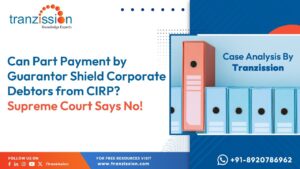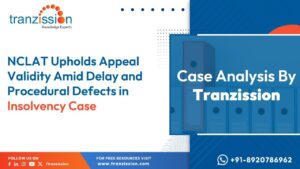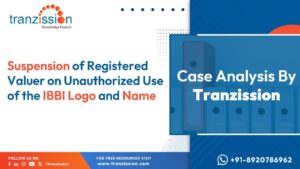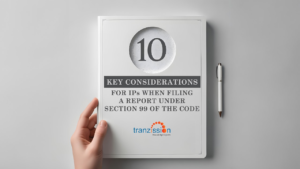
Identifying Legal Gaps in the IBC (Part 1): Initiating Insolvency and Bankruptcy for Individuals and Partnerships

Table of Contents
Introduction
There exists a prevalent misapprehension regarding the scope of Part III of the Insolvency and Bankruptcy Code, 2016 (hereinafter referred to as “IBC”), which pertains to the insolvency and bankruptcy of individuals and partnership firms. It is commonly believed that Part III has been operational solely for individuals acting as personal guarantors to corporate debtors. This belief is underpinned by the notifications issued by the Central Government in 2019, specifically delineating the Application to Adjudicating Authority Rules for the Insolvency Resolution Process and Bankruptcy Process for Personal Guarantors to Corporate Debtors. Complementary to this, two regulatory frameworks were promulgated by the Insolvency and Bankruptcy Board of India (IBBI) concerning the same.
Statutory Commencement and Notification
This interpretation is largely informed by the fact that the applicability of the IBC, as delineated in Section 2, clause (d), was triggered for personal guarantors to corporate debtors effective from 15 November 2019, as per Notification No. S.O. 4126(E). Concurrently, this notification activated Section 78 (with the exclusion of the fresh start process), Section 79, and Sections 94 to 187 of Part III, governing the insolvency resolution process and bankruptcy proceedings.
Legal Oversight
Notwithstanding, a critical oversight in the legal framework is evident. Clauses (e) to (g) of Section 2 were already brought into force on 23 November 2017, initially through the promulgation of the Insolvency and Bankruptcy Code (Amendment) Ordinance 2017, and subsequently solidified by the Insolvency and Bankruptcy Code (Amendment) Act, 2018. This amendment, which included the insertion of Sections 29A and 235A, posited that no separate notification for commencement was requisite as these amendments were deemed effective from the date of enactment of the Amendment Act.
This contrasts with other legislative enactments such as the Companies (Second Amendment) Act, 2002, which stipulates that it “shall come into force on such date as the Central Government may, by notification in the Official Gazette, appoint.” Despite several amendments and the insertion of new sections under this Act, their effective date remained unnotified by the Central Government.
Conclusion and Practical Implications
Consequently, it can be conclusively determined that clauses (e) to (g) of Section 2 commenced with effect from 23 November 2017. Therefore, the provisions of Part III as notified on 15 November 2019, pertain not only to personal guarantors but are equally applicable to insolvency resolution and bankruptcy proceedings concerning individuals, partnership firms, and proprietorship firms. Stated simply, the application for initiation of personal insolvency and bankruptcy can be filed in respect of defaults committed by individuals Including personal guarantors to corporate debtors), partnership firms, and proprietorship firms
A pertinent question that arises is the procedural mechanism for initiating these proceedings before the Adjudicating Authority. Such applications may be lodged following either the NCLT or DRT rules. The non-existence of explicit rules and regulations does not impede the submission of applications sanctioned by the substantive provisions of the Code.
Should an application be dismissed by the Adjudicating Authority, the appropriate recourse would be to petition a Constitutional Court under Article 226/227 or Article 32 of the Constitution.
This legal anomaly necessitates careful scrutiny and may potentially catalyze further litigation and judicial examination, given its implications for the broader applicability of insolvency proceedings under Part III of the IBC.






1 Comment
Sir,
You are right.
Individual insolvency should be notified and effected asap.